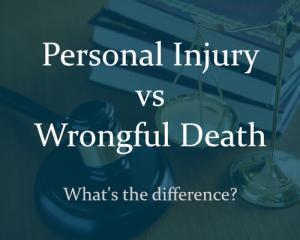
Call Us 24/7 For A Free Legal Consultation

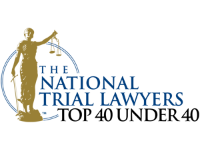

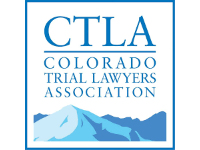
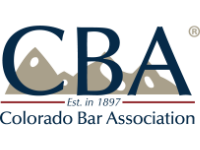

Wrongful death lawsuits have an incredible amount of work that needs to be done before even deciding to move forward and pursue compensation from the at fault party. The lawyers involved with the case need to gather all kinds of evidence, speak to any witnesses and evaluate these findings along with many others. Only after your injury attorney has done all these things can they make a decision on whether they think you have a case that can be proven in court and accepted by a jury of your peers.
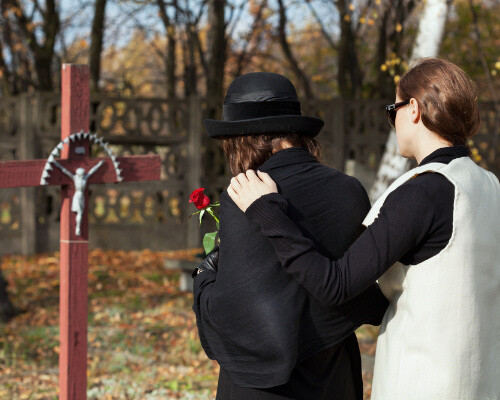
This means learning about every little detail of the case, including: what is a wrongful death lawsuit, what events led to the fatality, who was responsible for the wrongful doings, can it be proven that it was their fault, was there any safety procedures that were potentially overlooked that had a role in the outcome, was the damage and costs associated with the death worth enough to cover the costs of taking on the case and still receiving a payout and who gets the money in a wrongful death lawsuit? There are numerous other factors that we have to consider before taking on a wrongful death lawsuit, but this is just a quick list of what you should be prepared to speak about with your attorney when you decide to pursue your case.
If you are trying to decide whether to pursue your wrongful death claim or not, keep reading to get some more detailed information about each step of the process or feel free to give us a call and we can set you up with a free consultation with one of our expert Colorado wrongful death attorneys.
Motor Vehicle Incidents: Motor vehicle accidents occur everyday on the roads in Colorado and some can be exceptionally lethal. T-bone collisions make up a large percentage of the deaths that come from motor vehicle accidents. Motorcycle deaths are also very common as the riders don’t have a vehicle surrounding them to protect them from harm.
Workplace Accidents: There are many different types of workplace accidents that cause fatalities, but some of the most common are road construction workers and construction workers that work on multiple story buildings and roofs. When proper safety precautions aren’t adhered to, workers can easily become badly injured and in the event of their death, usually the company’s worker’s compensation program will cover the costs of the settlement as an aid to the victim’s family.
Slip & Fall Accidents: Many times slip and fall accidents end up being the fault of the person that owns the property where the incident occurred. This can mean icy sidewalks, broken stairs, potholes in their parking lot and many other scenarios. Many senior citizen deaths occur from slip and fall accidents due to their already impaired balance and mobility. Property owners must make sure their buildings and access points are very well taken care of to avoid issues like these.
Defective Products: We have all bought products that didn’t work how they should, but sometimes these manufacturer errors can lead to someone’s death. Whether it was a bad brake line that a car manufacturer installed without proper safety testing or a poorly designed machine that explodes and injures the operator, there are many possibilities for unfortunate tragedies to happen during everyday life and when these occur, it’s usually the manufacturer’s fault or other parties that had interaction with the products before it got to the consumer.
Abuse Of Elders: Elders are fragile and need to be treated with care, especially when it comes to giving the right medications at the proper intervals. Many nursing homes are overwhelmed and struggle to keep up with all of the tasks that need to be done which can end up being deadly for some of the patients. Unfortunately there are also workers that may find joy in abusing elders who can’t get help from anyone else and those people need to be held responsible for their terrible actions.
Errors By Medical Staff: Accidental mistakes during surgery is a very common thing that happens and many people don’t notice a problem until years later which can end up being fatal. From giving people medications they are allergic to or leaving surgical tools inside of a person’s body after surgery, there are many different errors that can be made during medical care.
Acts Of Violence: When a person willfully hurts another person and it causes their death, this is prosecutable in court to the full extent. The family of the victim can typically sue the at fault party for the death of their family member and receive compensation for their loss in return.
When filing a wrongful death claim, you must be able to prove that a person or company was at fault for the death that occurred. There are a few different ways that the courts will determine whether there is an at fault party or not, as detailed below.
Negligence: If the person that caused the death was acting in a negligent manner, like driving drunk or skipping over safety protocols. When the defendants actions are determined to be wrong or if they failed to do what any reasonable person would do in that situation, a judge may find that the wrongful death was due to negligence and hold the defendant accountable for their actions.
Intentional: If the person whose actions caused the death were intentional, meaning they meant to hurt someone or something, such as assaulting another person, then they can be held responsible for the descendant’s death.
Strictly Liable: There are many different scenarios where a person may be liable for another person’s injuries even if they did nothing wrong personally. This could be the owner of a company who decided to not implement proper safety protocols or even the owner of a dog that attacks and kills a child. These types of situations usually bring the courts to hold the defendant accountable even though they weren’t directly involved in the fatal event.
As with any trial in court, there has to be enough valid evidence supporting the claims made to have a legitimate case and improve your chances of winning your wrongful death claim. Types of evidence can vary and every case is unique in what types of evidence may be available, but any extra evidence you can gather to help your case is always encouraged however, you should speak to your attorney before attempting to acquire that evidence to ensure you don’t do anything that is not allowed by the law when gathering evidence as there are many hidden rules regarding this matter that you may not be aware of.
Wrongful death lawsuits are handled by the courts differently than your typical criminal case. Normally the jury needs to find the defendant guilty beyond reasonable doubt, but for wrongful death claims, they just need to prove that the defendant should be liable based on a “preponderance of evidence”. This means that there must be a good amount of evidence showing how the defendant’s actions were most likely the cause for the fatality.
Some of the types of evidence that attorneys will try to gather and use in court are:
Audio & Video Evidence: If there was an audio recording depicting the event that happened, this may be used in court. Video evidence is one of the strongest types of evidence as it gives the courts a visual display of what exactly happened and who was involved.
Witness Reports: Witnesses to the event should be brought in to give a statement and then possibly testify in court on what actually happened. These witnesses can not be tampered with by any means so never try to contact a witness of your case without prior approval from your wrongful death attorney.
Expert Testimony: Certain events may require your attorney to bring in an expert witness. This means someone that has studied the type of accident that occurred and can reconstruct the event to draw conclusions of what would normally happen in such an incident. This could be an engineer, accident reconstruction specialist, medical experts and more.
Police Reports: Police reports usually go into a lot of detail of what happened and can sometimes be very beneficial to your case. However, sometimes the officers fail to document every aspect of the incident which could end up making it harder to prove your case or if there is evidence in the police report that goes against your testimony it can create turmoil, so make sure to inform your attorney of every little detail when preparing your case.
Medical Records: Medical records can often show that one of the persons involved had a medical condition that may have affected the person’s ability to react appropriately to the situation. The medical records may also help your case if the person at fault didn’t take their medication or haven’t been seeing their doctor as required.
Corporate Records: Most corporations keep a detailed log of all of their safety protocols, materials used and many other factors that go into running a successful business. These records can help identify if there were inferior products used in the manufacture of defective products as well as helping determine if the company was blatantly ignoring standard safety procedures that are required by law for the industry they operate in.
Due to the fact that many aspects of a person’s death may not have specific numbers tied to how much their death costs their immediate family in monetary value, the court uses a system that aims to look at many different aspects of the descendants life to award an appropriate settlement to the victim’s family.
Some of the direct monetary claims are easy to put numbers on such as funeral costs, medical bills from the incident, therapy and grief counseling for the family and any other emergency expenses accrued because of the incident.
Next up is the “emotional” damages side where things aren’t as black and white. The courts take into consideration a few different aspects of the person’s life before they died when deciding what their life was worth monetarily to their family. Some of these things include:
Lastly, there may be punitive damages awarded if the defendant’s action were intentional and they meant to do harm. In this case, the judge may require punitive damages to be paid as a punishment for their actions and these fees can become hundreds of thousands of dollars depending on the circumstances of the incident.
Navigating a wrongful death lawsuit is not an easy task, especially for anyone who is not an experienced wrongful death attorney. If you think you have a valid wrongful death case, but aren’t sure, feel free to give us a call at (719) 578-1106 to set up a free consultation with one of our Colorado Springs wrongful death attorneys. We will walk you through everything and tell you if we think your case could hold up in court. If we do decide to move forward with your case, we don’t get paid until we get you a settlement.
We serve clients injured anywhere throughout the state of Colorado, but we focus on residents of these areas: Colorado Springs, Manitou Springs, Fountain, Briargate, Monument, Black Forest, Pueblo, Canon City, Larkspur, Security-Widefield, Peyton, Castle Rock, Teller County, El Paso County, Elbert County, Park County, Douglas County and beyond.
Consultations are always free and available 24/7 over the phone.